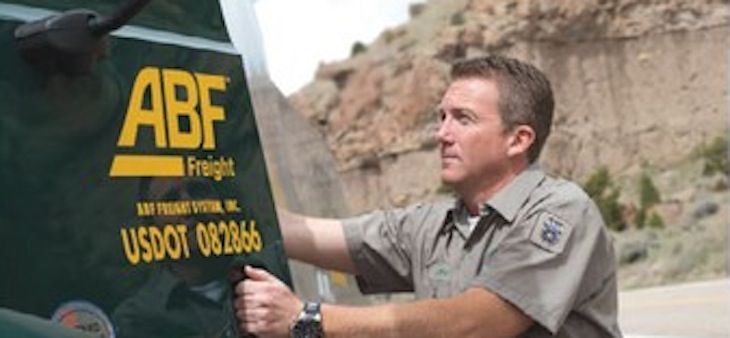Teamsters don’t want ‘concessionary contract’ in push for new deal with ABF
by March 22, 2018 12:03 pm 874 views

Officials with the Teamsters and Fort Smith-based ABF Freight System are set to meet again Monday (March 26) in another attempt to hammer out a contract for the 8,000 union members employed by the company.
According to information from the International Brotherhood of Teamsters, negotiations between the Teamsters National Freight Industry Negotiating Committee (TNFINC) and ABF began Jan. 8 for a new five-year contract. A second round began Jan. 29. The existing contract is set to expire March 31.
The 2013 contract negotiations ran into June, when the main body of a contract was approved. Supplemental regional provisions were approved in October 2013.
ArcBest, the parent company of ABF, said in 2013 the new contract would result in savings of between $55 million and $65 million a year. The savings were expected to result from an immediate 7% wage reduction that is recovered by the fifth year of the contract. The wage and benefit reductions began Nov. 3, 2013. The company was also able to negotiate for flexibility in work schedules and work across job classifications. Most of those workers are drivers.
In exchange for wage reductions, workers would receive the pay cut at least partially returned as bonuses once the company reached operating ratio targets of less than 96%. In the third quarter of 2017, the company’s operating ratio was 95.8%, and Stifel analyst David Ross expects the ratio to rise to 97.7% in the fourth quarter and complete the year at that level. If the estimate holds, ABF would not have had a year with an operating ratio of less than 96% since the agreement. Operating ratio is a company’s operating expenses as a percentage of revenue.
‘ROBUST ECONOMIC ENVIRONMENT’
The 2013 contract was negotiated in a much different economic environment. ArcBest was in the midst of more than $16 million in losses thanks to a freight recession that followed the Great Recession. Also, a precedent for wage concessions was set when the Teamsters provide wage and benefit reductions for then-struggling YRC.
Heading into 2018, the trucking and logistics industry is poised to have a solid year thanks to numerous factors – regulations, ecommerce realities, driver shortages, to name a few – resulting in more freight demand than freight-handling supply. Changes in the federal tax code are also expected to improve margins for companies like ABF.
And ArcBest has been in the black the past few years. Full year net income totaled $35.57 million in 2017, $24.3 million in 2016, and $44.854 million in 2015.
“The union also made clear to the company that it believes the robust economic environment for trucking services that has improved over the past year, along with the demand for seasoned drivers and the valued services of all ABF Teamsters, should be reflected in any economic settlement,” noted a March 16 Teamsters report.
ABF officials “raised claims that its employee costs and operating costs are too high,” the Teamsters noted of the initial meetings. The Teamsters responded by noting that “members were not interested in a concessionary contract.”
NOW IN A ‘DIFFICULT PHASE’
ArcBest had no comment on questions from Talk Business & Politics related to the negotiations and about how the Teamsters portrayed the company’s negotiating positions.
Teamster lead negotiator Ernie Soehl said he had hoped for more feedback from an “economic proposal” presented by the Teamsters as part of the negotiations.
“I would have liked more back and forth this week in terms of economic discussions but I hope the company takes the next several days to appreciate the important contributions that all Teamsters make to the long-term success of this company,” Soehl, said in a statement. “We will have small group meetings next week to better analyze each party’s positions, and then fully resume talks on March 26 with the goal of reaching a new agreement by the month’s end.”
Soehl said the next negotiating rounds are critical in terms of reaching terms that are best for both parties.
“We are now in the most difficult phase of these important talks but remain united and committed as a bargaining team to reaching a tentative agreement that meets both the goals of the membership while also allowing the company to maintain and grow its successful position in the trucking industry.”
